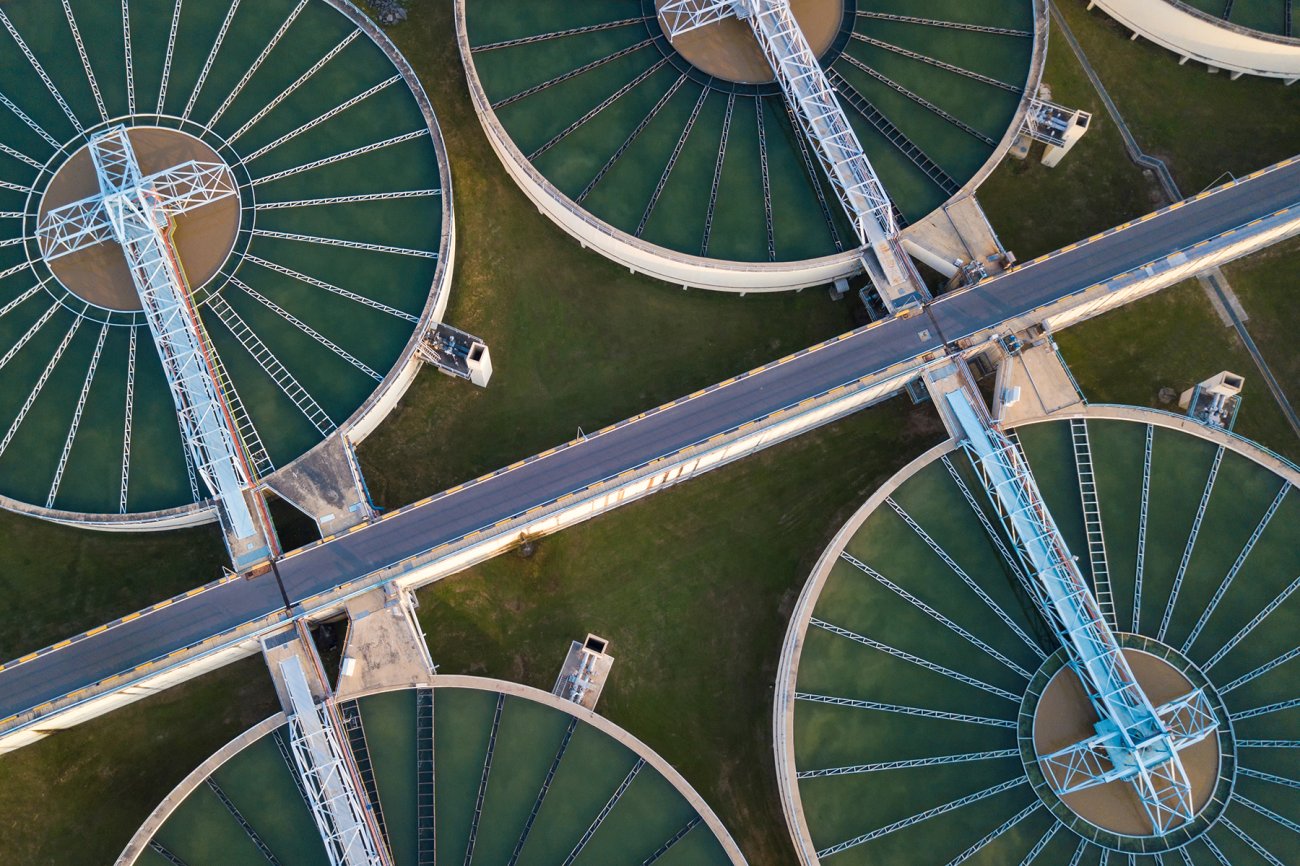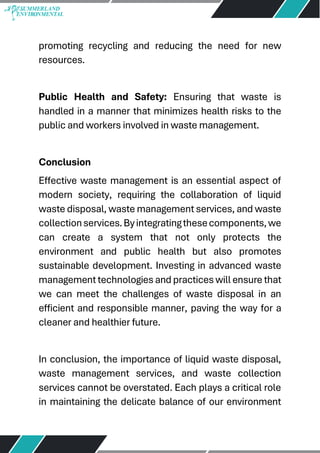Reclaim Waste - The Facts
Reclaim Waste - The Facts
Blog Article
The Buzz on Reclaim Waste
Table of ContentsReclaim Waste Fundamentals ExplainedThe smart Trick of Reclaim Waste That Nobody is DiscussingThe Facts About Reclaim Waste UncoveredThe 15-Second Trick For Reclaim WasteRumored Buzz on Reclaim WasteAbout Reclaim Waste

Never place dangerous substances down sinks, toilets or stormwater drains Substances including gasoline, grease, oil, pesticides and herbicides, and solvents such as paint strippers need to not be put down sinks, toilets or stormwater drains pipes. These materials are tough to eliminate in the sewage therapy process and cause pollution problems in our regional rivers.

Although liquid waste is a term that covers a wide variety of materials, there's an excellent reason leaving its disposal to the specialists is advised. Fluid waste is non-solid material that has no more usage and needs to be treated and thrown away according to local, state and government guidelines.
The Single Strategy To Use For Reclaim Waste
Although examples of fluid waste can consist of wastewater, fats, oils or grease, utilized oil, fluids, solids, gases or sludges and unsafe house liquids, there are some that are thought about to be more unsafe than others when it comes to the atmosphere and the health and wellness of pets and humans alike. It's for this reason that each state and region have actually strict guidelines linked to fluid waste management.
Fluid waste can be kept in holding tanks or packaged in drums, intermediate mass containers or approved little containers before either being dealt with or gotten rid of using outsourced vacuum cleaner trucks. Provided the nature of the materials, liquid waste can not go in the basic waste stream and there are rigorous guidelines on how to deal with it properly.
(http://peterjackson.mee.nu/do_you_ever_have_a_dream#c2256)Depending on a resolution of the degree of risk, it might be essential to remediate those sites. Additionally, unsafe fluid chemical wastes are managed waste and must be tracked based on the state waste legislation. Under the chain of safekeeping and obligations, owners are liable and responsible for waste created by a business.
One of the core applications for superabsorbent polymers (SAPs) is liquid waste solidification. industrial wastewater treatment. SAPs are used by waste monitoring professionals to stop possibly dangerous liquids from getting in rivers, groundwater aquifers, and other sensitive atmospheres. Due to the fact that liquids can quickly move contaminants right into environmental receptors and possibly add to geotechnical failings, liquid wastes are virtually constantly prohibited from disposal in garbage dumps
The 4-Minute Rule for Reclaim Waste
Generally, free fluids are liquids that separate from the solid section of waste product. Liquid waste can include the following: HDD mud and cuttings Land fill leachate Wastewater therapy sludge & biosolids Dug up debris Oil and gas drill cuttings Resolving fish pond muck Hydro Excavation slurry Coal burning residuals/ash Storage tank bottom sludge Concrete grinding/polishing slurry Related Short article: For a functional example of free fluids separating from waste product, take into consideration the complying with circumstance: A waste management specialist lots a dump truck with sludge from a wastewater treatment plant's oygenation basin, throughout a routine maintenance event.
Nonetheless, when the motorist comes to the garbage dump, he notices water seeping from the sludge and putting from the dump vehicle. The load was denied by the land fill and the driver was compelled to throw away the waste as a fluid waste at an unique center, which boosted the disposal fees tremendously.
The globe is drowning in rubbish and we can't afford to be irresponsible anymore. We need to do something about it and reuse whatever we can wherever we can. We additionally require to be in charge of the appropriate disposal of our waste materials. It is insufficient that we pay garbage disposal companies to look after our rubbish.
The Of Reclaim Waste

Segregating your waste can begin inside the home. Set apart dry and fluid waste as well as edible waste, naturally degradable and non-biodegradable products.
Layer the bottom with dirt to soak up the damp waste. Layer the garden compost with damp and dry waste as well as soil to preserve an equilibrium between the wet and the completely dry.
The Definitive Guide to Reclaim Waste
Cover the compost container. When a week, add dirt in addition to the garden compost. To promote faster decomposition, you can also include semi composted soil to the compost. Maintain the compost. If you see the scent is becoming as well strong, add extra papers and paper waste or include more holes to the garden compost container to maintain the equilibrium of the waste products.
The world is drowning in rubbish and we can not afford to be untrustworthy anymore. We need to do something about it and reuse whatever we can wherever we can. We additionally need to be responsible for the proper disposal of our waste products. It is not nearly enough that we pay garbage disposal companies to take care of our rubbish.
Our waste, our responsibility. Have you ever before questioned what happens to your liquid waste after it's gathered? Did you understand that liquid waste can be recycled? As accountable people, you should understand what takes place more information to your rubbish and where it pursues it is removed from you. Recognizing the fluid waste removal procedure is essential in assisting you to segregate your waste.
Reclaim Waste - Questions
Segregating your waste can start inside the home. Set apart dry and fluid waste as well as edible waste, eco-friendly and non-biodegradable materials.
You can utilize old trash can, pail, yard pot or old plastic drums. Pierce four to 5 openings in the container so the air can flow. Layer all-time low with soil to soak up the damp waste. Begin the composting process. Layer the compost with damp and completely dry waste as well as dirt to preserve a balance in between the wet and the dry.
Cover the garden compost bin. As soon as a week, add soil on top of the compost. To assist in faster decay, you can likewise add semi composted dirt to the garden compost. Preserve the garden compost. If you discover the scent is becoming as well solid, include extra newspapers and paper waste or include more openings to the garden compost bin to keep the equilibrium of the waste products.
Report this page